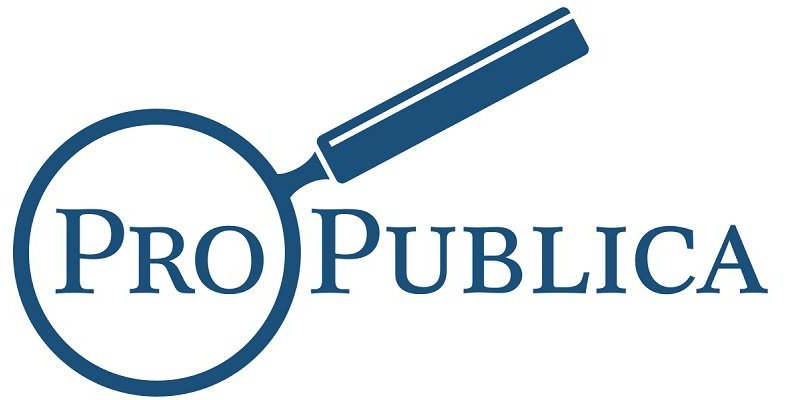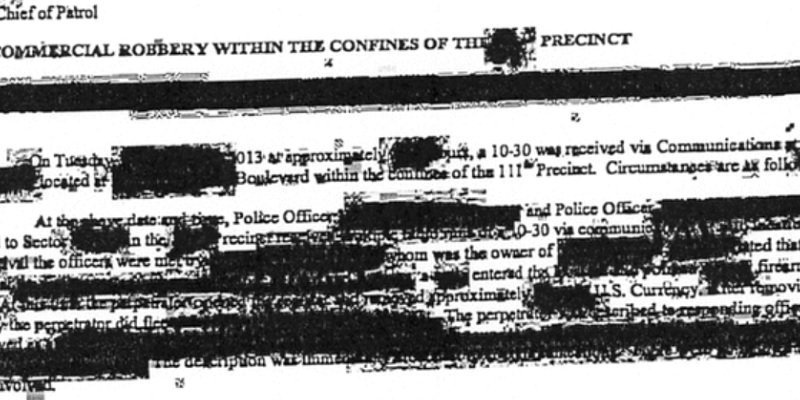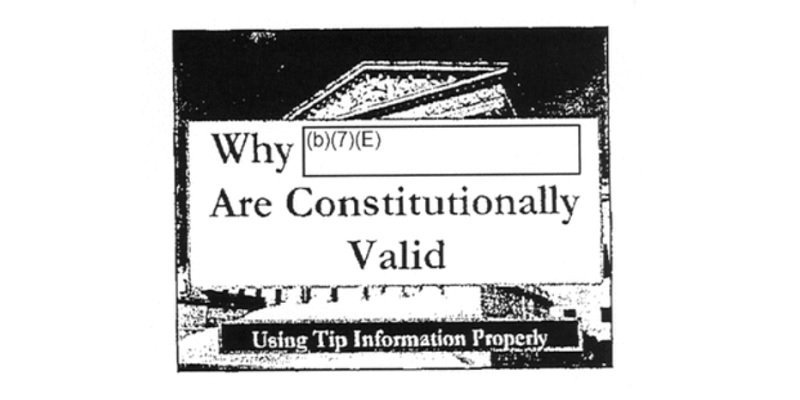-

Requester’s Voice: Julia Angwin
In this week’s Requester’s Voice, ProPublica’s Julia Angwin stresses the importance of finding a person within an agency to help your requesting, and shares a little game that journalists play with one another.
-

Federal Election Commission argues it can’t tell you why it can’t tell you what it can’t tell you
The Federal Election Commission withheld it guidelines for use of the controversial b(5) FOIA exemption by … citing b(5). After an appeal, the FEC had no choice but to release the documents after it turned out they had been posted publicly on their website the entire time.
-

The DEA tracked synthetic psychedelic “25I” for two years before classifying Schedule I
This DEA report details the two-year process of research and data gathering the agency went through before determining three compounds similar to LSD should be classified and regulated as Schedule I drugs, the most dangerous category.
-

Massachusetts marijuana dispensary evaluations appear to contain mixed up math
The Massachusetts Department of Public Health has so far refused to disclose documents that might clear up its dispensary approval and scoring process. Documents released so far leave a number of questions, down to basic arithmetic.
-

NYPD wanted $1.25 for illegible documents
Every once in awhile, even the notoriously opaque NYPD breaks down and releases documents. If you’re persistent, you may even be able to read them.
-

Did Gen. Vo Nguyen Giap plan a goodwill trip to the United States?
Newly disclosed documents reveal FBI field offices around the country took measures to prepare for an anticipated U.S. visit by legendary Vietnamese general Vo Nguyen Giap in 1993. But, for reasons that remain unclear, the potentially historic trip never came to pass.
-

Homeland Security launched its social media monitoring program at the 2010 Vancouver Winter Olympics
At the 2010 Winter Olympics in Vancouver, DHS field tested a new initiative to mine online news and social media — everything from Twitter to Wikileaks to ESPN — for “situational awareness.” Years later, there have been some tweaks to the methodology, but the project continues to cull online media activity for trends, breaking news and sensitive keywords.
-

How you can (legally) read Intellipedia
You’ve heard of Wikipedia, but did you know about the US government’s own Intellipedia? In 2006, the US Intelligence Community unveiled a version of Wikipedia for internal use.
-

Requester’s Voice: C.J. Ciaramella
C.J. Ciaramella filed his first MuckRock request in March 2013, and most recently obtained the DEA’s training materials on parallel construction. For this week’s Requester’s Voice, CJ outlines how public records bring together journalists and activists from across the political spectrum.
-

NYPD rejects request for its freedom of information handbook
As part of an ongoing effort to better understand the public records and transparency process, I requested NYPD’s public records request handbook. Bafflingly, NYPD denied my request for documents that outline the transparency process itself.
-

Zen and the art of the Glomar rejection
Whether a document exists is a yes or no question. But for federal agencies, that question can get a bit more metaphysical.
-

You have to tell the FBI where to look
These two quick tips could make a big difference when requesting public documents from the agency.
-

FBI redacting even basic summary figures on UAV fleet
The FBI has been ordered to disclose thousands of pages on its use of unmanned aerial vehicles for surveillance. But more than 1,000 pages in, we still know next to nothing about its drone inventory, much less how they’re used.
-

DEA’s training materials show agency doubling-down on “harmful and addictive” narrative
Some of the most revealing slides from a Drug Enforcement Administration presentation on how to hide evidence chains have nothing to do with parallel construction, and instead show the DEA’s doubling-down on the narrative that marijuana is a dangerous, addictive substance with no medicinal value whatsoever.
-

Requester’s Voice: Steven Aftergood
A two-time FOIA lawsuit winner against the CIA and National Reconnaissance Office, Steven Aftergood directs the Project of Government Secrecy at the Federation of American Scientists. There he writes Secrecy News, the FAS blog, and advocates for public access to government information. For this week’s Requester’s Voice, Aftergood spoke with MuckRock about refining requests and the intersection of science and secrecy.
-

Walrus tusks can’t go through airport security, even in plastic bags
A small selection of ivory smuggling reports from the Department of Fish and Wildlife shows that airplane passengers and drivers crossing the Canadian border were often surprised to learn that owning elephant and walrus tusks is against the law.
-

██████ tops the DEA’s list of techniques acceptable to the American public
When it comes to combining sensitive intelligence collection and domestic law enforcement, the Drug Enforcement Administration trains its agents that there are four methods that the American public smile on. Interestingly, the DEA refuses to say what one of those methods is, much less what it entails.
-

DEA teaches agents to recreate evidence chains to hide methods
The DEA’s training guides on parallel construction emphasize the risks and rewards of using sensitive intelligence information in domestic law enforcement, as well as the methods available to agents eager to obscure the source of their investigative leads.